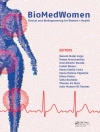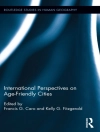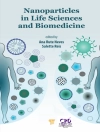The SAGE Handbook of Health Care Ethics is an influential collection of work by leading scholars on the fundamental and emerging themes which define health care ethics. Combining international and interdisciplinary perspectives, the Handbook provides a cutting-edge account of debates in five key areas:
– health care ethics in an era of globalization
– beginning and end-of-life
– vulnerable populations
– research ethics and technologies
– public health and human rights.
This authoritative Handbook brings together experts with backgrounds in philosophy, sociology, law, public policy and the health professions and reflects the increasing impact of globalisation and the dynamic advances in the fields of bioscience and genetics, which keep ethics at the centre of debates about the future direction of healthcare. It is an invaluable resource for all students, practitioners, academics and researchers investigating ethical issues in relation to healthcare.
Table des matières
Introduction: Health Care Ethics in an Era of Globalisation – Ruth Chadwick, Henk ten Have and Eric M Meslin
Methodology – Vittorio Hosle
Foundationalism and Principles – Henk Ten Have
Anti-Theory – Roberto Andorno
Ethics of Care – Ruud ter Meulen
Human Rights, Health Care Ethics and Globalisation – Tom Faunce
Professional Codes – Michael Davis
Organizational Ethics – Eva Winkler
Deliberation and Consensus – Diego Gracia
Privacy and Confidentiality – Derek Beyleveld
Informed Consent – Vilhjalmur Arnason, Hongwen Li and Yali Cong
Health Information Technology and Globalisation – Kenneth Goodman
Abortion – Michael Barilan
Ethics of Genetic Counseling – Gamal I Serour and Ahmed R A Ragab
Regulating Reproductive Technologies – Don Chalmers
Reprogenetics – Andrea Kalfoglou
Palliative Care Ethics – Pierre Boitte and Jean-Philippe Cobbaut
Medical and Societal Issues in Euthanasia and Assisted Suicide – Georg Bosshard and Lars Johan Materstvedt
Advance Directives – Paul Schostmans
Vulnerability: A Futile or Useful Principle in Healthcare Ethics? – Jan Solbakk
Vulnerability in Health Care and Research Ethics – Agomoni Ganguli-Mitra and Nikola Biller-Andorno
Mental Health and Disorder – Rachel Cooper
Medical Research Involving Children: A Review of International Policy Statements – Julie Samuel, Bartha Maria Knopppers and Denise Avard
Orphan Diseases – Ruth Chadwick and Paul Mc Carthy
Poverty and Indigenous Peoples – Leonardo D de Castro, Peter A Sy and Teoh Chin Leong
Research Ethics – Paul Ndebele
Health Research in the Global Context – Michael Mc Donald and Nina Preto
International Research – Volnei Garrafa
Ethical and Scientific Issues in Gene Therapy and Stem Cell Research – Kenneth Cornetta and Eric M Meslin
Ethics of Screening – Kris Dierickx
Ethics of Clinical Telemedicine – Kenneth V Iserson
Ethical, Legal and Social Issues in Brain Death and Organ Transplantation: a Japanese Perspective – Tsuyoshi Awaya
Ethical Issues in Nanotechnology – Bert Gordijn, Rob de Vries and Dónal P O′Mathúna
Ethics of Environmental Health – Michiel Korthals
Pharmaceuticals – Margit Sutrop and Kadro Simm
A propos de l’auteur
Henk ten Have studied medicine and philosophy at Leiden Univer′sity, the Netherlands. He received his medical degree in 1976 from Leiden University and his philosophy degree in 1983. He worked as a researcher in the Pathology Laborato-ry, University of Leiden (1976-1977), as a practising physician in the Municipal Health Services, City of Rotterdam (1978-1979), and as a Professor of Philosophy in the Faculty of Medicine and Fac-ulty of Health Sciences, University of Limburg, Maastricht (1982-1991). From 1991 he was a Professor of Medical Ethics and the Director of the Department of Eth-ics, Philosophy and History of Medicine in the University Medical Centre Nijmegen, the Netherlands. In September 2003 he joined UNESCO as Director of the Division of Ethics of Science and Technology. Since July 2010 he is Director of the Center for Healthcare Ethics at Duquesne University in Pittsburgh, USA.












